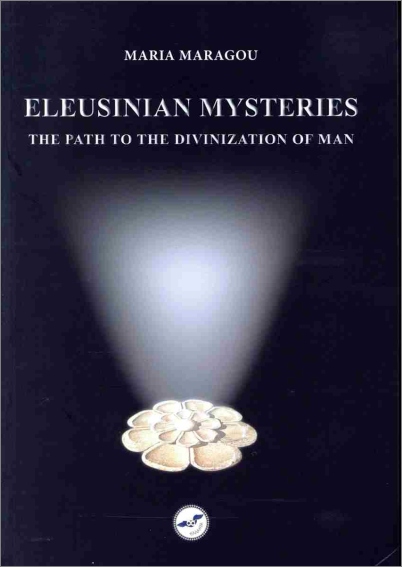0
Your Καλαθι
Eleusinian Mysteries
The path to the divinization of man
Έκπτωση
10%

10%

Περιγραφή
Dedicated to Demeter and Dionysus, Eleusinian Mysteries are theurgy rites delivered by Goddess Demeter herself to humans; she revealed the progression of the mind, which constitutes the essence of the soul in matter, its stay there through a cycle of incarnations -alternate stages of life and death and eventually its return to the First Principle from which it emanates, entailing the divinization of man and immortality of the soul. In the holy rituals of Eleusis, the initiates become perfected, experiencing the transedence of death.
Dionysus-Iacchus, the chief leader of the Mysteries, supervises this soul's progression to divinization, which descends to Hades-our world (Persephone) and curates its essence (Kore). Whoever is initiated to his Mysteries, Pindar says, he gets to know the end of his lifespan, his death, and the beginning of life, a gift sent by Zeus; he pledges that he will not reveal these mystery rites otherwise he would face the death penalty. The Mysteries had a moral dimension intended to endow the initiates with virtue and make them better in every aspect.
An etymological intepretation of coded names, words and phrases is also given in this book; for example of what is said during the second degree of initiation (epopteia), in an effort to approach philosophically the processes of nature, which are parallel to those of the soul. The whole march in the Sacred Way and the important stops of the Iacchus procession correspond to the journey of the soul while it descends to matter. Other subjects are also treated: the lament and laughter of the Gods, copper as the metal of daemons, the sacred symbols of the ear of wheat and the poppy flower, the mystic symbolism of the serpents in the dragon-drawn charriot Demeter gives to Triptolemus, and how all these imprint the latest theories of Quantum Physics about elecromagnetism and mass particle creation.
The Sanctuary of Eleusis was silenced after the onslaught of the new religion and, as Nestorius, the last Eumolpid hierophant had said, this was the beginning of a long spiritual night for humanity, because:
"Blessed is the one who among the people on earth has seen these things, but
the uninitiated and the uninvolved have no such fate. They are lost beneath foggy and misty darkness". [Homeric Hymn to Demeter, vv. 480-482.
Dionysus-Iacchus, the chief leader of the Mysteries, supervises this soul's progression to divinization, which descends to Hades-our world (Persephone) and curates its essence (Kore). Whoever is initiated to his Mysteries, Pindar says, he gets to know the end of his lifespan, his death, and the beginning of life, a gift sent by Zeus; he pledges that he will not reveal these mystery rites otherwise he would face the death penalty. The Mysteries had a moral dimension intended to endow the initiates with virtue and make them better in every aspect.
An etymological intepretation of coded names, words and phrases is also given in this book; for example of what is said during the second degree of initiation (epopteia), in an effort to approach philosophically the processes of nature, which are parallel to those of the soul. The whole march in the Sacred Way and the important stops of the Iacchus procession correspond to the journey of the soul while it descends to matter. Other subjects are also treated: the lament and laughter of the Gods, copper as the metal of daemons, the sacred symbols of the ear of wheat and the poppy flower, the mystic symbolism of the serpents in the dragon-drawn charriot Demeter gives to Triptolemus, and how all these imprint the latest theories of Quantum Physics about elecromagnetism and mass particle creation.
The Sanctuary of Eleusis was silenced after the onslaught of the new religion and, as Nestorius, the last Eumolpid hierophant had said, this was the beginning of a long spiritual night for humanity, because:
"Blessed is the one who among the people on earth has seen these things, but
the uninitiated and the uninvolved have no such fate. They are lost beneath foggy and misty darkness". [Homeric Hymn to Demeter, vv. 480-482.
Κριτικές
Δεν βρέθηκαν δημοσιεύσεις





